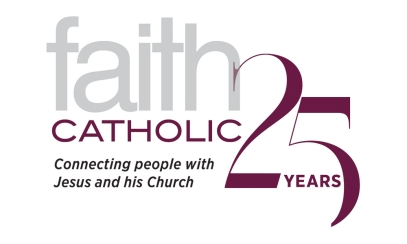A theory about truth
Seek not to understand that you may believe, but to believe that you may understand. St. Augustine
Seek not to understand that you may believe, but to believe that you may understand. St. Augustine
The educational philosophy of our American schools is to teach our children using the scientific method. This means only that which can be objectively verified with empirical evidence is considered to be “true,” all else being merely theory. Consequently, objective facts are the only truth. But let’s stand back and ask ourselves: Is that true? What, then, of those things we know to be true using the vehicle of poetry? What about art – doesn’t it likewise communicate truth to us? Literature? Psychology? In other words, does the scientific method hold a monopoly on truth? Obviously not!
Paradoxically, our Catholic faith is based on the evidence given to us from “out there,” and by “out there” I mean those realities that exist outside of our minds and independent of our awarenesses.
It’s important that you and I understand that at the same time there are many of today’s illuminati who are insisting that the only truth that matters is the truth that I know on my own. In other words, only those things that I say to be true are in fact true! The only feelings that matter are my own feelings. Subjective relativism is the controlling philosophy.
Throughout the centuries, Catholicism has invested enormous resources in colleges, high schools and elementary schools. This has all been done because our Catholic faith is based on solid evidence. The Catholic mind examines objective reality and comes to the conclusion that certain things are probable and, therefore, should be believed. Anything is possible; it is what’s probable that counts.
Furthermore, say that there are certain absolutes, certain things that are universally true – which is to say that your mind and my mind can know and accept certain things as true because we know them and understand them the same way. Two apples plus two apples amount to four apples is but one obvious example.
Reason, however, doesn’t exist simply for itself. Truth for truth’s sake is a nice idea, but it is incomplete. Any piece in a jigsaw puzzle exists by itself but does not acquire its full meaning unless fitted in with the rest of the pieces. Which is to say that reason, all by itself, can lead us astray. Any existing thing cannot only be used, it can also be abused.
Catholics believe that God expressed His mind, His will and His love in His Word. God our Father made His Word incarnate so that we could know, reason, understand and love as God made us to – as well as for His purposes. Which is to say we need to see, know, understand, judge and act in the Light of the World, in the Light of Christ. Reason unaided can lead us to do unreasonable things, a statement that is self-evident and verified in our daily news. Faith can and should be our guide.



